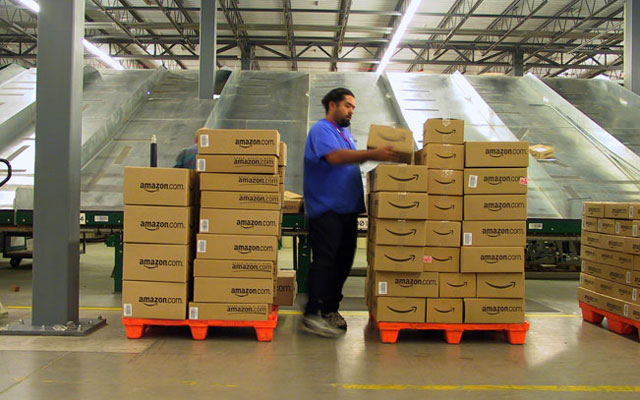As President Obama heads to Chattanooga, Tennessee, today to give a speech at an Amazon.com fulfillment facility, he finally seems to be coming around on the positive effects that imports have on the economy.
For a long time, the President failed to acknowledge that both exports and imports create jobs here in the United States. But last week, at the port of Jacksonville, Florida, the President finally started to promote the jobs that imports from the port are creating in the local community:
If we’ve got more supertankers coming here, that means more jobs at the terminals. That means more warehouses in the surrounding area. That means more contractors are getting jobs setting up those warehouses. That means they’ve got more money to spend at the restaurant. That means the waitress has more money to spend to buy her iPod. It starts working for everybody.
During his visit to the Amazon.com fulfillment center today, the President will see more real examples of the jobs that imports create. Many of Amazon’s products are imported from overseas, including electronics and apparel. Furthermore, many of the other products that Amazon sells that are manufactured in the U.S. rely on inputs that are imported. These manufactured products are part of complex international supply chains that source from throughout the world.
When these products are imported, they create jobs throughout the U.S. Research by The Heritage Foundation has shown that imports of apparel and toys in 2010 from China alone supported over half a million jobs here in the U.S.
Earlier this week, Amazon.com announced that it was creating nearly 5,000 jobs in fulfillment centers throughout the country. These workers, and the rest of Amazon’s staff, all benefit from the jobs these imports create, whether they are product pickers at a fulfillment plant in Chattanooga or marketing managers at Amazon’s headquarters in Seattle, Washington.
Critics constantly drone on about how harmful the trade deficit is for the economy. In reality, both imports and exports add value for U.S. consumers and create jobs for U.S. producers. It’s good that the President is finally starting to acknowledge some of these economic realities.
